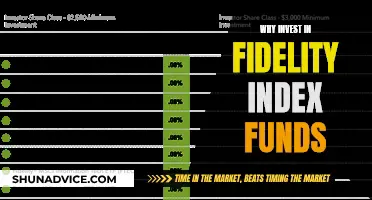
Investing in mutual funds is a popular choice for many people. Mutual funds are a type of investment fund that pools money from multiple investors to purchase a diversified portfolio of securities, such as stocks, bonds, or other assets. One of the advantages of mutual funds is that they provide instant diversification, allowing investors to spread their investments across various industries and sectors, which can help minimise risk. Mutual funds are also convenient as they are managed by professional fund managers who have the expertise to select and manage investments, saving investors time and effort. Additionally, mutual funds are accessible to individual investors with different budget sizes, and they offer liquidity, enabling investors to buy or sell their shares easily. However, it's important to consider the fees and expenses associated with mutual funds, as well as the potential for fluctuations in investment value due to market conditions. Before investing, it's advisable to carefully review the fund's prospectus, understand its investment strategy, and assess your own risk tolerance.
| Characteristics | Values |
|---|---|
| Initial investment | Typically a few thousand dollars |
| Diversification | Instantly diversified holdings in many different industries or types of securities |
| Management | Actively managed funds require a portfolio manager who constantly updates their holdings; passively managed funds are built on a buy-and-hold strategy |
| Fees | Sales loads, expense ratios, early redemption fees |
| Reinvestment | Dividends can be reinvested into more shares |
| Trading | Only bought and sold at the end of the trading day |
| Performance | Historical performance is no guarantee of future results |
What You'll Learn

What are the advantages of mutual funds?
Mutual funds are a popular investment choice, especially for those who don't have the time or expertise to monitor the market closely. They are a good option for those who want to diversify their portfolio without having to select individual stocks or bonds. Here are some advantages of investing in mutual funds:
Diversification
Mutual funds are an investment pool that collects money from many investors and invests it in a wide range of assets like stocks, bonds, or other securities. This diversification reduces the risk of loss by spreading investments across a wide range of assets. By purchasing mutual funds, you get instant diversification, which would otherwise require a large amount of wealth or expertise to achieve.
Professional Management
Mutual funds are managed by professional fund managers who make investment decisions based on extensive research and analysis. This saves investors time and effort in monitoring the market and provides access to expert knowledge and strategies.
Convenience and Accessibility
Mutual funds offer convenience and accessibility to investors. They are relatively simple to invest in, especially through payroll deduction or retirement accounts. They also have low minimum investment requirements, allowing investors to start with a small amount of money and contribute regularly.
Liquidity
Mutual funds offer liquidity, which means investors can typically buy and sell shares relatively quickly. This flexibility helps investors tailor their investment approach to meet their financial goals and provides an advantage over other investments that may be harder to sell in a hurry.
Fair Pricing and Low Costs
Mutual funds provide fair pricing and can be a low-cost investment option. While fees and expense ratios can vary, there are many no-load (commission-free) and no-transaction-fee funds available. Additionally, the economies of scale of mutual funds can lead to lower transaction costs for investors.
Liquid Fund Investment: Strategies for Success
You may want to see also

What are the disadvantages of mutual funds?
Investing in mutual funds has its pros and cons. Here are some of the disadvantages of mutual funds:
Costs of managing the fund
The fees and salaries of market analysts and fund managers are covered by the investors, along with the operational costs of the fund. These costs are one of the first parameters to consider when choosing a mutual fund. Higher management fees do not guarantee better fund performance.
Exit load
Exit load fees are charged by fund managers when exiting a mutual fund. They discourage investors from redeeming investments for some time, acting like a lock-in period to maintain stability. This also helps the fund manager gather the required funds to purchase the appropriate securities at the right price and time.
Dilution of profits
While diversification averages your risks of loss, it can also dilute your profits. Therefore, you should not invest in many mutual funds at once.
High initial investment
Compared to ETFs, mutual funds have a high initial investment, typically a few thousand dollars.
Fees and sales charges
Mutual funds can come with high expense ratios, but you’ll also want to watch out for sales charges that may be included when you purchase or sell a fund.
Tax events
If you hold mutual fund shares in non-retirement accounts, you may be surprised to get a capital gains distribution from the fund. You have no control over the size of the distribution, so it’s best to own mutual funds in retirement accounts where you won’t have to worry about the taxes.
Limited trading
Mutual funds are only bought and sold at the end of the trading day once their NAV is calculated.
Franklin Templeton Mutual Funds: Safe Investment Haven?
You may want to see also

What are the different types of mutual funds?
There are several types of mutual funds, each with its own investment objectives, risks, and rewards. Here are some of the most common types:
- Equity Mutual Funds or Stock Funds: These funds primarily invest in stocks or shares of publicly traded companies. They are often categorized based on the size of the companies they invest in, such as large-cap, mid-cap, or small-cap funds. Equity funds may also be classified as growth funds, which focus on stocks with potential for high financial gains, or income funds, which invest in stocks that pay regular dividends.
- Fixed-Income Mutual Funds or Bond Funds: These funds invest in bonds and other debt securities. Bond funds can be further categorized into U.S. Treasury bond funds, municipal bond funds, corporate bond funds, high-yield bond funds, mortgage funds, and foreign bond funds.
- Money Market Mutual Funds: These funds invest in short-term debt instruments, such as U.S. Treasury bills, and are considered low-risk investments. They aim to preserve capital and provide liquidity, but they tend to offer lower returns compared to other types of funds.
- Target Date Funds or Lifecycle Funds: These funds hold a mix of stocks, bonds, and other investments, and the allocation gradually shifts over time according to a predetermined strategy, usually based on an investor's retirement timeline.
- Index Funds: Index funds aim to replicate the performance of a specific market index, such as the S&P 500. They are passively managed and designed to minimize costs, offering lower fees than actively managed funds.
- Asset Allocation Funds or Balanced Funds: These funds invest in a combination of stocks, bonds, and cash equivalents, providing diversification across different asset classes. The ratio of investments is typically adjusted based on factors such as market conditions, business cycle changes, or the investor's life stage.
- Sector and Specialty Funds: Sector funds focus on a specific industry or sector, such as technology, healthcare, or energy. Specialty funds include alternative investments such as hedge funds, managed futures, real estate, commodities, and derivatives contracts.
- Growth-and-Income Funds: These funds invest in stocks of companies that pay dividends and have growth potential. They also invest in bonds to provide a balance between growth and income.
- Capital-Preservation Funds: These funds invest in short-term, low-risk securities, such as U.S. Treasury bills and certificates of deposit (CDs). They aim to preserve capital and provide stability, but the returns may not keep up with inflation.
Index Funds: Liquid Assets or Long-Term Commitment?
You may want to see also

How do I choose a mutual fund?
There are a few key factors to consider when choosing a mutual fund.
Firstly, you should decide whether you want an actively or passively managed fund. Actively managed funds are run by professionals who buy and sell investments for the fund, and they tend to be more expensive. However, it has been difficult for these funds to outperform the market over the long term. On the other hand, passive funds, or index funds, aim to track and duplicate the performance of a benchmark index, and they tend to be cheaper.
Secondly, you should calculate your budget. Many mutual fund minimums range from $500 to $3,000, though some are in the $100 range, and some even have a $0 minimum.
Thirdly, you should consider your risk tolerance. Generally, the closer you are to retirement age, the more holdings in conservative investments you may want to have.
Fourthly, think about your asset allocation. If you're just starting out, you might want to look into broad mutual funds that invest in different areas of the stock market.
Finally, consider the fees. Passive funds tend to be cheaper than active funds, and they tend to perform better. However, even within passive funds, there are different levels of fees, and these fees can eat into your returns.
Artemis Vega Fund: A Smart Investment Strategy
You may want to see also

How do mutual funds compare to other investments?
Mutual funds are a popular investment choice, especially for retirement accounts like 401(k)s. They are a relatively hands-off way to invest in many different assets at once. They are also simple, affordable, and provide instant diversification.
Mutual Funds vs Individual Stocks
Mutual funds are typically considered a safer investment than purchasing individual stocks. Since they hold many company stocks within one investment, they offer more diversification than owning one or two individual stocks.
Mutual Funds vs ETFs
Exchange-traded funds (ETFs) are very similar to mutual funds but trade more like stocks. ETFs are purchased for the price of one share, whereas mutual funds typically require a minimum investment of a few thousand dollars. ETFs can be purchased throughout the trading day, whereas mutual funds can only be bought and sold at the end of the trading day once their net asset value (NAV) is calculated.
Mutual Funds vs High-Yield Savings Accounts
If you're looking for an alternative to money market mutual funds, a high-yield savings account is a good option. You'll typically receive interest beyond what's available in a traditional checking or savings account, and your money will be safe up to a certain amount per depositor.
Types of Mutual Funds
Mutual funds come in a variety of types, including stock funds, bond funds, money market funds, balanced funds, and target-date funds.
Stock Mutual Funds
Stock mutual funds, also known as equity mutual funds, carry the highest potential rewards but also higher inherent risks.
Bond Mutual Funds
Bond mutual funds invest in a range of bonds and provide a more stable rate of return than stock funds. As a result, potential average returns are lower.
Money Market Mutual Funds
These mutual funds own safe securities such as cash and very short-term debt, making them generally safer than stock- or bond-based funds but also lower-return.
Balanced Mutual Funds
These mutual funds can invest in stocks, bonds, and money market instruments, offering lower volatility in exchange for lower overall returns.
Target-Date Mutual Funds
Target-date mutual funds are popular in 401(k) accounts. They typically invest in stocks, bonds, and money market instruments, reducing risk as the investor nears the target date.
Commodity Mutual Funds
Commodity mutual funds may invest in one type of commodity or commodity producer, or in closely related commodities.
Alternative Mutual Funds
This kind of mutual fund may target types of investments beyond stocks and bonds and may do so using non-traditional strategies. For example, funds may own real estate or early-stage companies.
Active vs Passive Mutual Funds
Active funds attempt to outperform market benchmarks by analyzing stocks and trying to pick the ones that will earn the highest returns. Passive funds, on the other hand, aim to equal a benchmark's performance. Passive investing is a more hands-off approach and is rising in popularity, thanks in part to the ease of the process and the results it can deliver. Passive investing also often entails fewer fees than active investing.
Invest in Pimco Funds: A Guide to Getting Started
You may want to see also
Frequently asked questions
Mutual funds offer instant diversification, convenience, and lower costs compared to investing in individual stocks. They are also a safer and less complicated option.
Mutual funds take control out of the investor's hands and there are ongoing management fees, which may be more expensive than low-cost or no-cost brokerage companies.
Like all other securities, mutual funds are subject to losses. However, the goal of a mutual fund is to reduce investment risk, so they can often be less risky than other types of investments due to their diversification.
When shopping for a specific mutual fund, it helps to decide first on which of the two types of mutual funds make the most sense for your situation: index funds or actively managed funds. You should also compare the funds' operating expense ratios and look for any loads or transaction fees.







